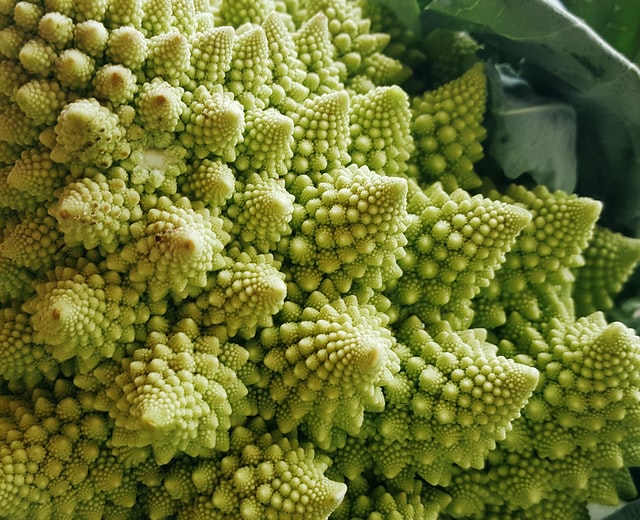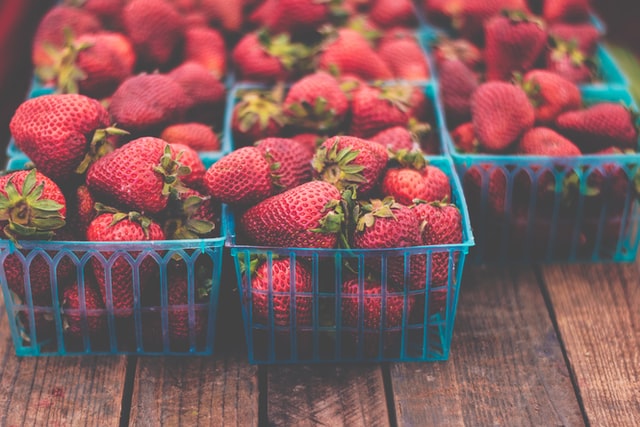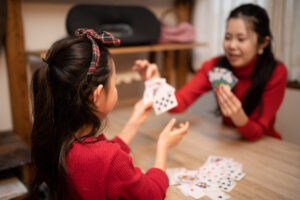This time of year is perfect for appreciating the warm sun and company that a farmers’ market can provide. In addition to a variety of fruits and vegetables, you can find many examples of early math at the farmers’ market. A visit to the local market might already be part of your family’s weekly routine. Like many everyday activities, shopping at the farmers’ market offers many opportunities to explore measurement, shapes, patterns, spatial relations, counting, and numbers.
In this blog, we offer ideas for exploring math before, during, and after a visit to the farmers’ market. By focusing on math at the market, children not only stay engaged during a fun outdoor experience, but also get to use their math skills in the real world. If you don’t have access to a farmers’ market, you can still practice many of these ideas at your local grocery store.
Planning Your Visit
What will you buy, and how many bags or boxes will you need to carry everything back home? Make a list of things to find at the market and count out your supplies before leaving.
At the Vendor’s Booth
After spotting an interesting booth, browse what’s for sale. Here, children can learn about new kinds of patterns and shapes, notice how things are positioned (which is key to building spatial relations skills), and practice counting.
Ask children about shapes and sizes they recognize.
- How do you know that this bar of soap is a rectangle? (It has four sides, with opposite sides the same length.)
- Which tomatoes are round?
- How can we describe the shape of the summer squash? Some squashes are long and narrow, some are wide and short, and some are long and wide!
Investigate patterns among sets of things.

- What colors do you see in the flower bouquets, and is there a pattern hidden among them? What about in the flowers themselves?
- Notice the patterns on zucchini and squash, and the stripes on some cucumbers (and bumps on others).
- The Romanesco broccoli (pictured) is a vivid example of a pattern where similar looking shapes gradually grow along the entire plant!
Consider where things are in relation to other things.
- A basket of carrots on the table is above shopping baskets on the ground. What’s next to or in front of the carrots?
- How many radishes are on the table?
- Take a step back and look at the row of booths: How many booths are there in all? Count each booth as you pass them to see what number each one is in the row. After you visit the third booth, go on to the fourth!
Making Purchases
Once you have selected something to buy, have your children count the number of items.
- How many zucchinis do we need so each person in our family will have one? How many small zucchinis does it take to match the length of the longest one?
- If you’re getting small things like berries: How many boxes are there to choose from (in total and/or in a row)?
- If paying with cash, have children count the bills. Older children can practice counting out the amount to pay and checking the amount received as change.
Back at Home
Putting away and enjoying what you bought at the farmer’s market also offers opportunities to build real-life math skills.

- Lay out the fruits, vegetables, breads or flowers to create colorful and fun patterns. Alternate celery and carrots to make a row of green-orange-green-orange. How many vegetables are there altogether?
- After rinsing and placing in a vase, observe which flowers are the tallest and which are shorter.
- Use words to describe place and space when putting away things in the fridge or on the counter. Is this vegetable drawer above or below the milk? Will the zucchini fit in the crisper drawer? How can we arrange the vegetables so more will fit? What is next to the flower vase, and what is above and below it?
See the World Through a Math Lens
Conversation starters like these are designed to promote exploration. Children examine and describe what they see and how it relates to other things around them. “Math detective” skills—or the ability to find math hiding in the world—can be useful in many places. It’s all about keeping an eye out for opportunities to find and talk about early math. As children grow and explore the world around them, you can foster their natural curiosity. The farmers’ market is just one example of new and exciting opportunities to discuss math, but these openings are truly all around us!



